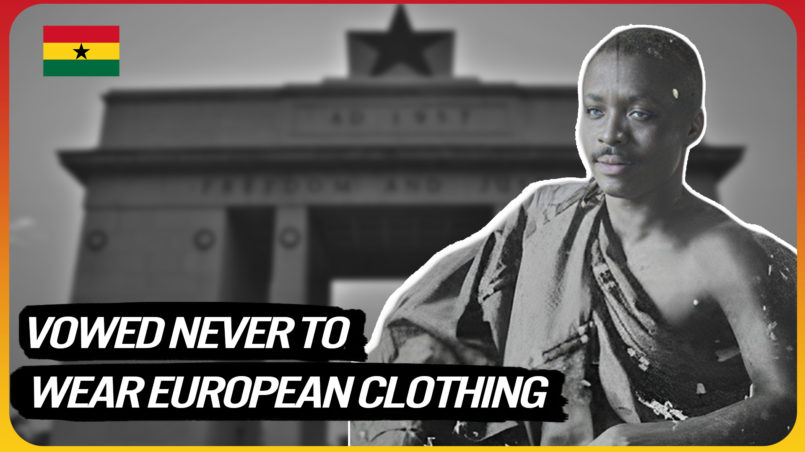Kobina Sekyi, formally known as William Essuman-Gwira Sekyi, was a Ghanaian nationalist, philosopher, lawyer, and writer born on November 1, 1892, in the Gold Coast (now Ghana). He attended Mfantsipin School, then known as Wesleyan School, in Cape Coast, where his father, John Gladstone Sackey, was the headmaster.
In 1914, Sekyi earned a Bachelor of Arts Honours in Philosophy from the University of London. He had originally enrolled in English literature at University College London but was convinced by fellow African student Delo Dosumu, a Nigerian reading for honors in philosophy, to switch to philosophy.
Sekyi won a prize in the first year of his studies in the history of modern philosophy, and in 1913-14 he won prizes in both history of modern philosophy and senior Greek philosophy. After completing his philosophy degree, he returned to the Gold Coast to teach for a period.
In 1915, he went back to England to study law and earned a Master of Arts in Philosophy. He then returned to the Gold Coast and became a private practitioner.
Sekyi’s most significant event or transformative experience occurred while on a ship bound for England. The ship, SS Falaba, was tragically sunk by a German U-boat, U-28, resulting in the loss of 104 lives. However, Sekyi was fortunate enough to make it onto a lifeboat. On the lifeboat, he was confronted by a European who shouted that he had no right to be alive while whites were drowning and ordered him to get out of the boat.
Racism was not a new experience for Sekyi. During his time as a student in London, he wrote articles about his experiences with white people, titled “Our White Friends.” Additionally, in his novel “The Anglo-Fanti Short Story,” Sekyi tells the story of an African boy who earned a scholarship to study law in London. In the novel, Sekyi writes, “It does not take him long to find out that he is regarded as a savage, even by the starving unemployable who asks him for alms. Amusing questions are often put to him as to whether he wore clothes before he came to England; whether it was safe for white men to go to his country since the climate was unsuitable to civilized people; whether wild animals wandered at large in the streets of his native town.”
These unpleasant encounters made him resolve to counter colonial put-downs, and embrace his tradition in a very radical manner.
Sekyi abjured European clothing and became the first lawyer in the Gold Coast to appear in court wearing African clothing instead of the established western suit. He continued to wear traditional African clothing until his death.
In the book “Clothing: A Global History” by Robert Ross, the author compares Sekyi’s bravery to other nationalist figures who employed clothing to challenge the colonial order and assert political identity.
Sekyi also wrote a comedy called “The Blinkards,” which highlighted the negative effects of discarding African culture and embracing foreign culture, perpetuated by colonial rule.
In 1918, he was called to the Bar from the Inner Temple and was later elected president of the Aborigines Rights Protection Society, taking over from his uncle Henry van Hien.
The Aborigines’ Rights Protection Society was an association formed in 1897. They protested and secured victory over the horrible Land Bill of 1897 that sought to give the Queen of England all the unoccupied lands in the Gold Coast and the other British colonies in West Africa. He was a member of the National Congress of British West Africa and was also appointed as a member of the Coussey Committee for constitutional change. It was their recommendations that formed the basis of the 1951 Constitution, which marked a giant step toward independence. He passed away in June 1956.
Kobina Sekyi emphasized the detrimental effects that may impede Africa’s progress if the continent did not return to its pre-roots and carefully choose the aspects of alien ways that are benefitial to the children of Africa.
The concerns raised by Sekyi in the 1920s remain relevant today. Recently, Kenya implemented a ban on the wearing of traditional African attire in parliament. Even the President’s favored Kaunda suit, named after the late Zambian President Kenneth Kaunda, is prohibited within the parliamentary premises. Speaker Moses Wetangula outlined a mandated dress code for men, including a coat, collar, tie, long-sleeved shirt, long trousers, socks, shoes, or service uniform. Women are expected to adhere to guidelines specifying business, formal, or smart casual wear, with skirts and dresses below knee-length.
Is Africa still struggling to overcome the feelings of inferiority and low self-esteem? Let me know your thoughts in the comment section. Thank you.


